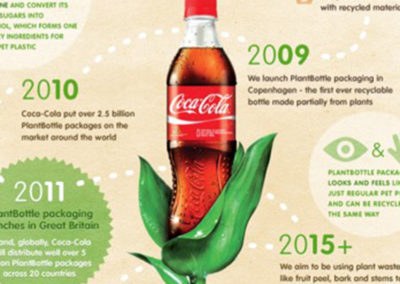What hinders and helps SMEs decarbonise?
The challenge:
Small and medium-sized enterprises (SMEs) are the backbone of the UK economy, accounting for 60% of the employment and 48% of the turnover in the private sector.
They also account for 36% of domestic greenhouse gas emissions.
Recent data reveals that few SMEs are taking steps to decarbonise. If the UK is to achieve net-zero by 2050, what can be done to assist?
Global industrial technology leader Schneider Electric asked a team of experts from Imperial to explore the barriers to decarbonisation for SMEs in the UK – and make recommendations to help overcome them.
The team:
Dr Gbemi Oluleye, Dr Aidan Rhodes, Luke Hatton, Zhenyu Tan and Elsy Mila are researchers and analysts from across Imperial who design and optimise sustainable market-based policy mechanisms to bring about economically viable pathways for large-scale decarbonisation.
The findings:
Challenges of decarbonisation – capability and capital
Data from the British Business Bank reveals that most SMEs are yet to implement comprehensive strategies, despite having access to a range of decarbonisation technologies, including, clean energy generation, low-carbon heating and cooling, and operational energy efficiency.
Clean technologies have the potential to deliver long-term cost savings, but the high upfront investment required remains a substantial barrier for many businesses. What with lower profit margins, limited internal knowledge, and higher cost of capital, SMEs often put big investments on the back-burner unless they have an immediate effect on their customers.
Team lead Dr Gbemi Oluleye added…
“We’ve also found that current policies to support their decarbonisation are fragmented and largely indirect. Many SMEs are not eligible for national climate schemes and therefore rely on devolved or local initiatives – and whilst tax relief and discounted loans exist, uptake remains low.”
“And to further complicate matters, emission sources and decarbonisation pathways across sectors unsurprisingly differ, so ‘one solution doesn’t fit all.’”
Recommendations to get SMEs decarbonising
The team suggest a suite of interventions, ranging from awareness and education – to targeted grants, green finance and regulatory reform, including:
- Helping SMEs better understand their energy and carbon footprint with subsidised sustainability audits and standardised reporting
- Educating on the cost and competitive advantages of decarbonisation
- Optimising government funding schemes such as the Industrial Energy Transformation Fund and Made Smarter Adoption programme to increase uptake
- Improving access to innovative low-cost finance to allow adoption of new technologies
- Funding renewable subsidies
- Reviewing business and energy taxation policies to ensure that capital allowances incentivise investment in decarbonisation measures and enable SMEs to participate in net zero initiatives while achieving emissions reductions
Read the team’s full analysis and recommendations here: Interventions to support UK SMEs decarbonise by 2030
Kelly Becker, President at Schneider Electric, UK & Ireland, Belgium & Netherlands said…
“This new report urges Government to continue to put decarbonisation and net zero at the heart of its policy programme. It also makes a compelling case for a joined-up approach by the private sector, and central and local governments.
“By investing in this transformation, we can future-proof the businesses that make up the backbone of our economy, and unlock new opportunities for productivity, international competitiveness, and green growth.
“Decarbonisation is not just vital for the planet; it comes with huge business benefits too.”
Read more about global industrial technology leader Schneider Electric and their Life is On initiative which looks to ensure access to energy for all at www.se.com.
Share post:
Related case studies

Reducing carbon footprint of plastic bottle
Our consultants shared their expertise in life cycle analysis to compare the carbon footprints generated by the The Coca-Cola Company’s new PlantBottle™ versus their previous PET plastic bottle. read more

Global adoption and regulation of electronic medical records
Our consultants shared their expertise in clinical medicine to help IMS Health to assess the adoption, governance and regulatory landscape of electronic medical records (EMR) at different levels of healthcare systems around the world. read more

Paediatric HIV symposium – 20th International AIDS Conference
Our consultants shared their expertise in anti-retroviral drugs, HIV infections/paediatric HIV to help ViiV Healthcare deliver symposia on growing the future leaders in paediatric HIV at the International Aids Conference 2014. read more
